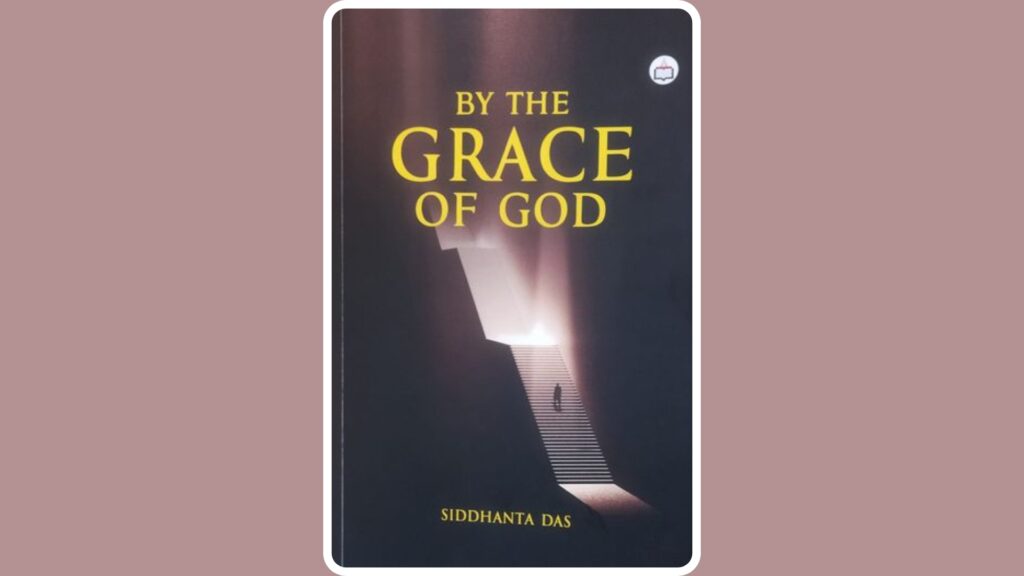Bhaskar Parichha

Book Name – By The Grace of God
Author – Siddhanta Das
Publisher – Authorspress
Memoirs written by bureaucrats offer valuable insights into the workings and decision-making processes within various government agencies and organizations. These books offer readers an exclusive look at the challenges and triumphs faced by bureaucrats in the course of their careers, providing insights into the inner workings of government.
Yet, there are drawbacks to memoirs penned by bureaucrats. Critics often argue that these memoirs come across as self-promotional, highlighting their own successes and viewpoints. This can lead to a one-sided and prejudiced story, lacking impartiality. Additionally, bureaucrats’ memoirs may not offer a complete picture of the government’s obstacles, as they tend to concentrate on personal stories and encounters.
But his memoir is different for the reason that it is down to earth and devoid of self- glorification. Siddhanta Das has been with the Indian Forest Service for many years. Since 1982, he has overseen forestry and wildlife management across India. Three years as Director General of Forests and Special Secretary in the Ministry of Environment, Forest and Climate Change. He has also contributed to forest education, forest-related economic ventures, and community-driven ecotourism. He has also worked on disaster management, pollution mitigation, and climate change. He is now the Chairman of the Central Empowered Committee and the Chairman of the Odisha Real Estate Regulatory Authority.
By God’s Grace is a bouquet of write-ups which is an attempt to share with a wider audience the author’s analysis of some real-life occurrences, his learnings from them and above all an expression of gratitude that emerged from each of the situations. There is no morality to preach or message to convey in any of them. They are mere representations of his understanding and reflect his middle-class upbringing in the by-lanes of Cuttack.
Writes Das in the preface: ‘My wife always believed that I could be a good writer, but I had my reservations. However, on her insistence I started random writing after retirement and cherished the compliments I received for it. However, I feel my accomplishments, whatsoever, are more due to working in the unknown space than utilization of skills. Many a times at critical crossroads, I had absolutely no clue on which path to choose. In such situations, I often dared plunging into the dark zone with options based on intuition, impulse, sixth sense; or any other term that one may like. I took chances to explore unfamiliar terrains. I believed, most good things (for that matter bad thing) in life happen by chance or accident; success, surprises and shocks are seldom planned. I was convinced that to a great extent, overall success depended on performance in the unknown space.’
He further writes: Rationalists generally, ignore the dark zone and pitch their argument based on whatever meets the eye. But, how can one wish away the dark zone, a major component, just because one does not have access to it? In spite of such advancement in science and technology, many mysteries are yet to be unraveled. As per Confucius, ‘Real knowledge is to know the extent of one’s ignorance and Socrates believed: The only wisdom is in knowing you know nothing; Creativity emerges out of illogicality; ideas which are initially dismissed as outrageous. Inventions which have brought in paradigm shifts in our quest for knowledge often were initially dismissed as eccentricities of the inventors. I believe, one transcends from foundational to rationality, then to irrationality and finally to creativity.’
‘All my life I enjoyed telling how lucky I was in various situations to the few friends and handful of colleagues, whose company I enjoyed. When it came to writing, my skills were honed to write policy guidance and when it came to routine decisions my writing was merely confined to as proposed; since I had the habit of always building a consensus before matters were put up on file. In any case in the Government system, those were the two magical words that gave an aura of authority to the approver while holding those below accountable. When I had time to spare, I narrated anecdotal experiences from personal and professional spheres to friends and family members. All of it, had one central thread running – it underpinned my conviction that it was God’s ordain which helped me at so many stages in my life.’
The collection of writings in this extensive piece come together to paint a picture of a life lived without regret or bitterness. It goes beyond just a regular memoir; it’s a true reflection of humanity. It offers a captivating glimpse into the uncomplicated world of a humble individual striving to make the most of life. It’s all about embracing life, its surroundings, and the countless unexpected twists that define this chronicle. These are simply anecdotes, details without any intention to impress. Mere glimpses of everyday existence, exchanged with genuine excitement and sincerity.
What sets this narrative apart is the genuine nostalgia, free from excessive sentimentality. The memoir moves back and forth, diving into different moments in time and resurfacing with a new story. Looking back on the past through the eyes of a seasoned individual doesn’t diminish the innocence of those memories. The overall tone is one of positivity, saving ordinary moments from being forgotten.
An enthralling memoir indeed!
(Mr Parichha is a senior journalist, author and columnist. Views are personal.)






















